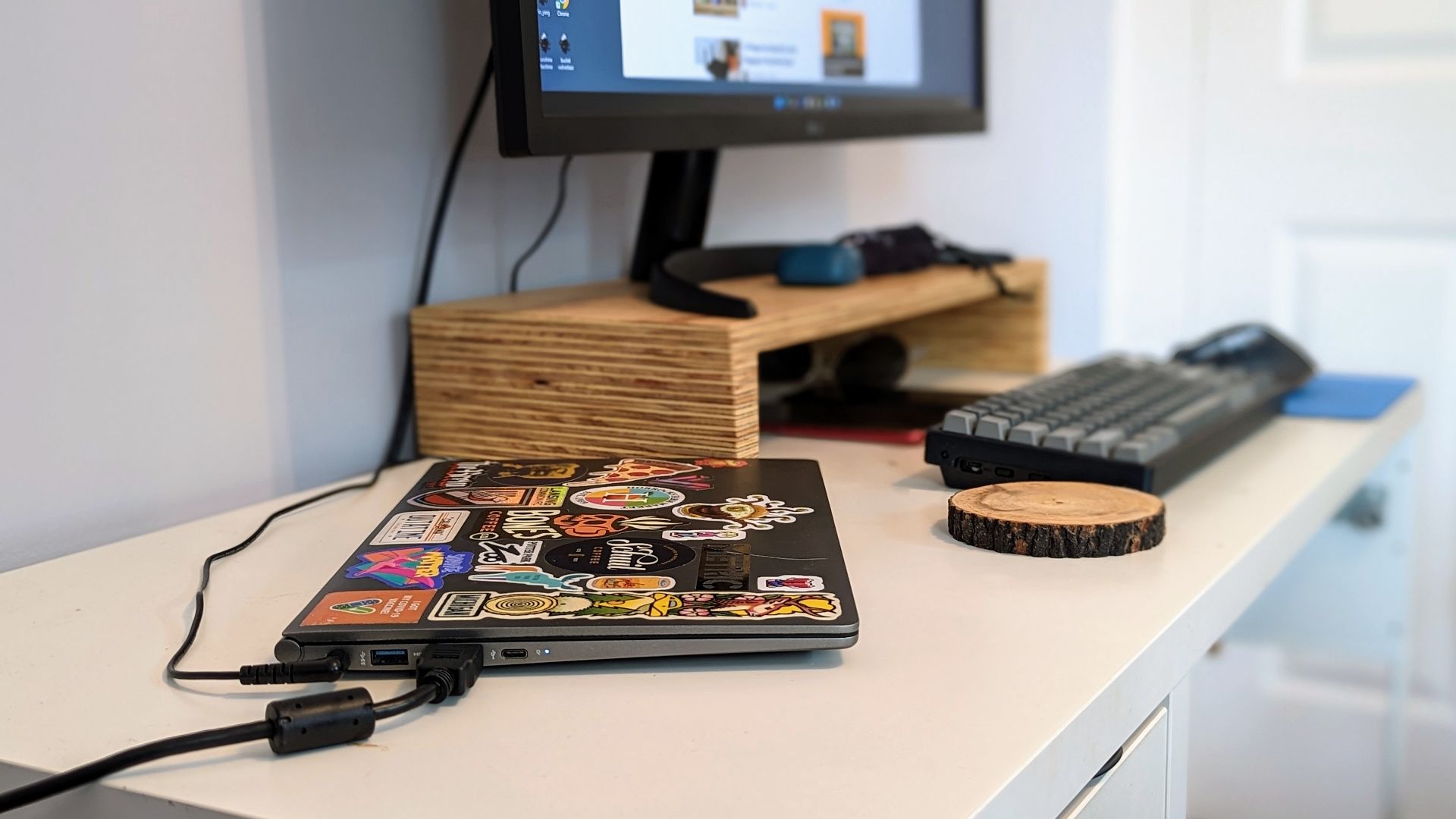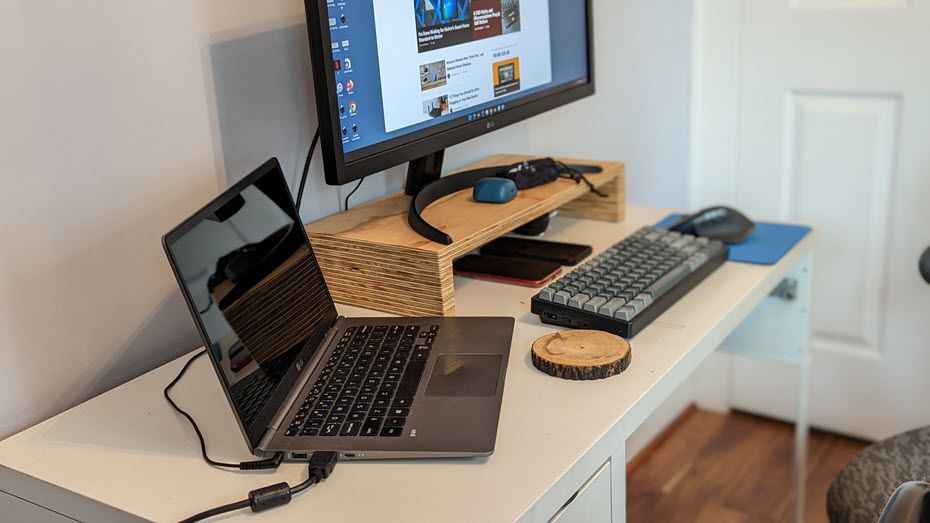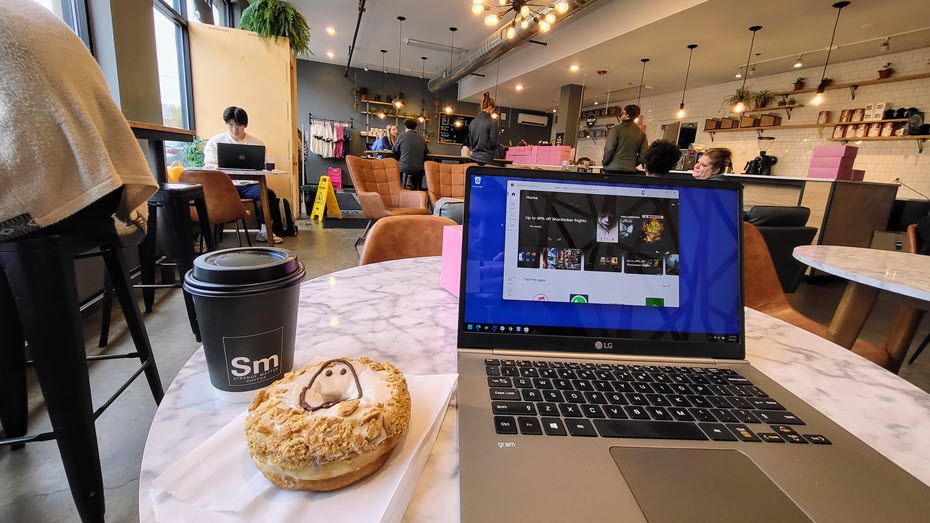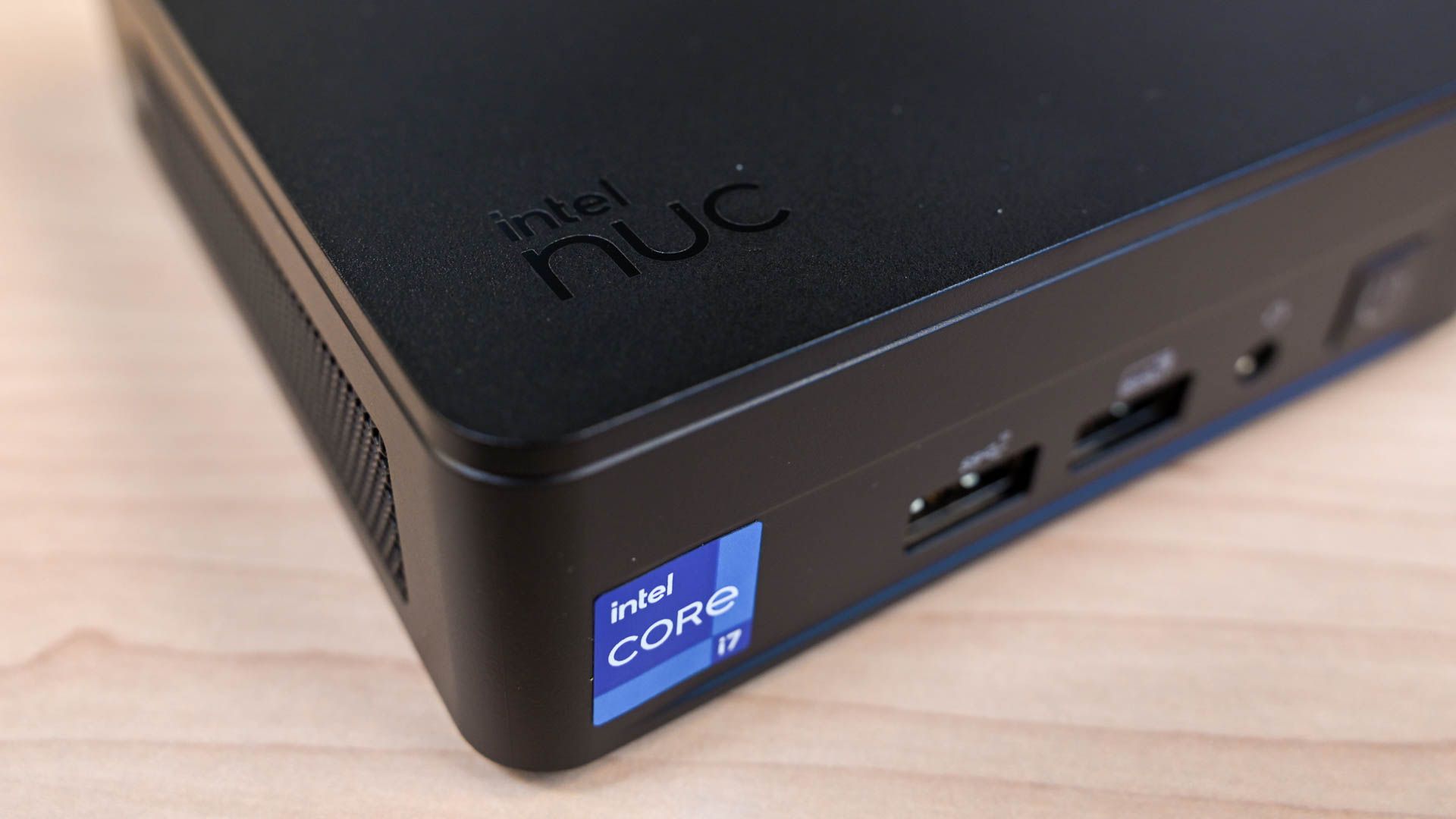Mini PCs are a great alternative to the classic big, bulky desktop computers. However, if you're looking for a compact PC to use with a monitor, mouse, and keyboard, a good ol' laptop is an even better mini PC.
A mini PC is as literal as the name sounds---a computer with the features of a desktop PC in a smaller package. If you think that sounds a lot like a laptop, you wouldn't be wrong. So why not buy a laptop instead?
You Still Need Peripherals
You're probably expecting me to say something like "a laptop is already a mini PC and you don't have to buy a monitor, mouse, and keyboard!" That's true, but if you're interested in getting a mini PC, you probably don't want to use a small laptop screen, keyboard, and trackpad. Well, you don't have to!
It's pretty easy to use a laptop in the same way that you would use a mini PC. Simply plug in a monitor, connect your keyboard and mouse, and you're ready to go. A laptop docking station or stand can make it even easier, but you might not even need them.
In the photo above, I have my laptop plugged into power and an ultrawide monitor. That's it. My mouse and keyboard connect over Bluetooth. It's a super simple setup that takes me 30 seconds to connect, but it's much, much more comfortable than using the laptop on its own.
If you're interested in a mini PC, you either already have the peripherals you like, or you're going to buy those too. You don't have to give them up just because you're using a laptop.
Flexibility to Take it Anywhere
Now you might be thinking, "But if I'm just going to connect the laptop to my monitor, mouse, and keyboard, what's the point?" You don't always have to keep it strapped down to your desk. A laptop can go with you.
This is the ultimate reason why a laptop is the best mini PC. As I said, a laptop can be used in the same way as a mini PC, but a mini PC can't be used in the same way as a laptop. You can pop a laptop into a bag and take it with you. Are you going to pack up your mini PC, monitor, keyboard, and mouse?
A laptop can free two birds with one key. It can be your desktop workstation with a big monitor, nice keyboard, and mouse, and also your portable PC for taking to class, coffee shops, and traveling. Even if you don't often need a portable computer, it's nice to have the option. Flexibility is a nice thing to have.
Mini PCs Use Laptop Parts
Let's get down and dirty and talk about specifications. Mini PCs are able to be mini by using smaller components than desktop PCs. Often times, that means CPUs, RAM, power supplies, and other components designed for laptops. it's also common for mini PCs to lack dedicated GPUs and fans.
Essentially, you might have a mini PC that is literally just laptop parts inside a smaller case. If that's what you're getting, why not also have the ability to use the computer away from your desk? It seems like needlessly restricting yourself.
Of course, not all mini PCs use low-powered laptop parts. There are plenty of mini PCs with Intel Core i9, Ryzen 9, or Apple M2 CPUs, GPUs, fans, and all the bells and whistles you'd expect from a desktop PC. That being said, you can get a laptop with desktop-class components too.
There are a lot of reasons to like mini PCs, but laptops share many of those same reasons. Mini PCs feel like a product category that's trying to accomplish the same things as a laptop, but without the flexibility. I don't see why you can't have your cake and eat it too.
You can have a compact device that doesn't cost as much as a desktop PC, is perfect for everyday computing, features smaller components, works with whatever peripherals you choose, and can travel with you if you need it. Sounds like the perfect mini PC, right?




